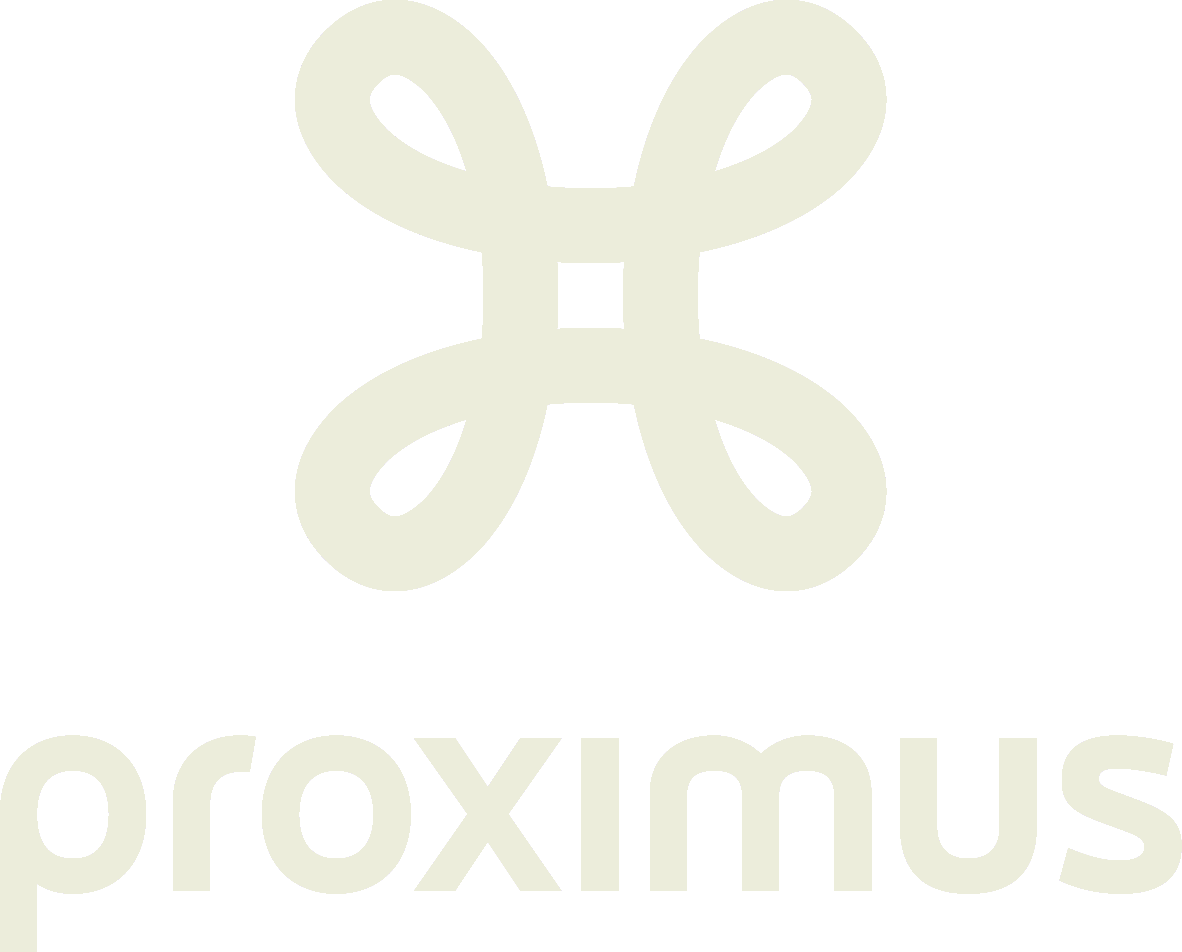

Take action
Show Up for Humanity is more than a festival, it's a launchpad for action. Whether you're already engaged or just getting started, there are countless ways to turn your worry into concrete change. On this page you’ll find ways to take action, both at the Show Up festival grounds as beyond the festival.
At the festival
Speed Date for Humanity
Connect with like-minded people in meaningful 15-minute conversations on the 20th of September. Share what worries you, discover what actions others are taking, and find allies, friends and / or co-founders.
How it works:
- Sign up to our online tool before the festival
- Tell us what you care about and what you're looking to do
- Get matched with others who share interests or could help
- Meet at designated quiet spots during the event
It's like dating, but for changing the world. From starting climate initiatives to finding activism buddies—real connections happen here.
Action Village
Discover concrete ways to make a difference at our on-site Action Village. Different organizations showcase various forms of active citizenship—from starting petitions to joining cooperatives, from local volunteering to global campaigns.
What you'll find:
- Interactive booths with hands-on activities
- Real stories from people making change
- Sign-ups for volunteer opportunities
- Tools and resources to take home
- Connections to ongoing initiatives
Note: The Action Village is currently fully booked, but if you're an organization interested in joining the waiting list, please contact us at info@worriedcitizens.com
Beyond the festival
Feeling the weight of the world? You're not alone. There are countless people who share your concerns and want to see change — the challenge is often knowing where to start.
You don't need to become a full-time activist or change your entire life overnight. Real change happens through small, consistent actions that fit your life, your skills, and your circumstances. Whether you have 5 minutes or 5 hours, whether you're shy or outgoing, whether you're a student or a CEO — there's a way for you to make a difference.
Remember: you're not starting from zero. You're part of a growing community of people who care deeply about our world. Small actions lead to bigger actions. One step leads to another. And every time you act, you make it easier for others to act too. Let's celebrate what we can achieve when we act—and then go out there and do it.
The goal isn't perfection — it's participation. So pick one thing that speaks to you, and start there. What's your first move?
Here are 20 concrete ways to turn your concerns into meaningful action:
Choose an impactful career
Why it matters
Your career isn't just a paycheck—it's your superpower. Over 80,000 hours of your lifetime. That's more time than you'll ever spend volunteering, donating, or signing petitions combined. Those 40 hours a week? They're either part of the problem or part of the solution.
Where to start
Don't quit your job tomorrow (unless you want to). Start small: pivot your current role toward causes you care about, champion positive projects at work, or hunt for employers who actually walk the talk on social impact. Organizations like The School for Moral Ambition prove that aligning work with values isn't just feel-good fluff—it's powerful. Picture thousands of people channeling their talent into climate action, fighting inequality, or defending human rights. The ripple effects would be massive. Your first mission? Commit to starting that journey today.
Donate effectively
Why it matters
Throwing money at problems isn't enough—you need to throw it smart. Effective giving means every euro you donate creates maximum impact, whether you're tackling poverty, saving the planet, or building stronger communities.
Where to start
Make giving fun and strategic. Start a "giving circle" with friends—pool your donations monthly and vote on causes together. Challenge friends to skip one dinner out and donate that money instead. Organizations like Effectief Geven show you exactly where your money saves the most lives. When thousands give smart, we shift resources where they matter most. Pick one idea above, challenge a friend, and make your move today.
Start or sign petitions
Why it matters
Petitions are democracy in action—quick, simple, powerful. Your signature tells leaders, companies, and institutions that people are watching. Starting your own? You can rally thousands around the issue that keeps you up at night.
Where to start
You're not alone in this. Platforms like WeMove and Avaaz make launching petitions ridiculously easy, with support every step of the way. Don't underestimate the power—petitions have toppled unjust laws, forced corporate U-turns, and shaped international treaties. Think of it as planting your flag: "This matters, and I'm not alone." Visit Oxfam, Amnesty International, or 11.11.11 websites, find something that sparks your anger or hope, and sign that first petition. Ten seconds could kickstart real change.
Eat like the planet depends on it
Why it matters
Your plate is a statement. Every meal shapes your health, the planet's future, and other people's lives. Plant-forward, local, ethical choices chip away at environmental destruction and unfair food systems.
Where to start
Small swaps, big impact: shift towards plant-based meals, seasonal produce, avoid food waste. Organizations like GAIA, ProVeg, and Fork Ranger serve up recipes, guides, and tips that make conscious eating delicious and doable. You don't need a big personality change to just try one plant-based option. Make it a weekly habit, throw down a friendly challenge with friends. Everything's better with competition!
Shop with purpose
Why it matters
Every purchase is a vote for the world you want. Ethical brands, repaired goods, second-hand finds—they all reduce exploitation, cut pollution, and push markets toward fairness and sustainability.
Where to start
Get smart about shopping: explore COSH! for fair fashion, hit up repair cafés, browse Kringwinkel for treasures. Ditch brands that fail basic social and environmental standards. Support the BDS Movement if you stand with Palestine. Small changes create big ripples—try the second-hand store first, or resurrect a forgotten item from your closet. See where it takes you.
Join a protest
Why it matters
Protests aren't just historical footnotes—they're democracy's heartbeat. They amplify voices, build solidarity, and force decision-makers to act. Every person in the crowd adds power to the call for justice.
Where to start
No experience needed, just show up. Join marches with Coalition Climat, Red Line Coalition, or any cause that fires you up—climate action, human rights, social justice. Bring family, colleagues, anyone who'll listen. Showing up is making a statement. Every march starts with someone saying, "I care enough to be here."
Build inclusive communities
Why it matters
Strong, inclusive communities are the antidote to isolation and powerlessness. When we share skills, organize events, and create spaces where everyone belongs, we build local resilience and genuine connection.
Where to start
Focus purely on social connection: organize neighborhood dinners, host skill swaps, start a community garden, or throw a street party. Check local organizations to help you set-up community events, while most municipalities offer subsidies and materials for neighborhood gatherings. Even small gestures work—invite neighbors for coffee, start a walking group, or create a WhatsApp group for your building or street. Every connection makes your neighborhood stronger.
Volunteer your superpowers
Why it matters
Time is your most valuable currency, and volunteering is a flexible way to spend it wisely. Explore different causes, build skills, discover where your contributions hit hardest—all while fostering empathy and community. Even a few hours monthly can create real change.
Where to start
Choose organizations whose missions genuinely excite you. Kom op Tegen Kanker, Oxfam, Debateville, and Croix-Rouge offer structured volunteer programs with training and ongoing support. Commit to regular hours rather than one-off help—consistency amplifies your impact. Browse volunteer matching platforms, attend organization info sessions, and ask about training programs. Block time this weekend to research three organizations and schedule a conversation with at least one.
Join or start cooperatives
Why it matters
Cooperatives flip the script on capitalism—they're owned and run by members who share risks, benefits, and decision-making power. They pool resources for shared value, build community resilience, and prioritize sustainability over profit maximization.
Where to start
Explore existing cooperatives like Plenty (urban farming), Brupower or Ecopower (community energy), Coop Centraal (retail), Neibo (housing), or RICO Lab (ethical neighborhood store). Get involved, volunteer, or start your own around a local need. Take action this week: visit a cooperative you're curious about, chat with members about how it works, or plan your next date at a cooperative bar or brewery—Brussels has plenty!
Launch a social business
Why it matters
Social businesses prove you can solve problems AND make money. They tackle social or environmental challenges while staying financially sustainable, showing that entrepreneurship can scale positive change, not just bank accounts.
Where to start
Notice the challenges that keep you up at night—at work, in volunteering, in your community. Study impact-focused business models or get inspired by organizations like GoForest or BonMush. Have an idea? Test it through pilot projects, prototypes, or collaborations. Talk to social entrepreneurs about their journey—they'll share the real deal. Starting a business might feel intimidating, but it's a practical way to tackle problems you care about. Events like Speed Date for Humanity are perfect for connecting with founders and collaborators, so you don't have to go it alone.
Educate and tell stories that matter
Why it matters
Education drives systemic change by helping people understand complex issues and inspiring them to act. Creating clear, accessible content—whether it's explaining climate science, breaking down economic inequality, or teaching practical skills—empowers others to make informed decisions and join movements for change.
Where to start
Create content that feels natural: podcasts, blogs, videos, newsletters, social media posts. Highlight underrepresented perspectives, break down complex topics simply, share personal experiences you're comfortable opening up about, just like Chloé Mikolajczak or Félicien Bogaerts. Start small: discuss concerns with friends, join online forums, contribute to collaborative projects, volunteer to speak at events. This week's challenge: share one insight, experience, or article with someone you trust and start a real conversation.
Support others directly
Why it matters
Direct peer support creates profound human connections that go beyond formal volunteering. Buddy programs, mentoring relationships, and informal mutual aid address immediate needs while building lasting bonds across social divides. This personal approach to helping restores dignity and creates ripple effects of kindness.
Where to start
Focus on relationship-building rather than task completion: become a buddy through Kanzo’s programs that connect people across social divides, mentor newcomers navigating systems, offer companionship to isolated neighbors, or provide practical support like helping with paperwork or translation. The key is consistency and genuine friendship rather than charity. This week: reach out to one person you know who might appreciate regular check-ins, or contact a buddy program to learn about meaningful ways to connect with someone from a different background.
Amplify unheard voices
Why it matters
Many important perspectives remain unheard in mainstream conversations due to systemic barriers. Actively seeking out and amplifying voices from marginalized communities ensures more complete representation in public discourse and helps challenge dominant narratives that perpetuate inequality.
Where to start
Be critical of your worldview: notice biases shaped by your experiences and seek perspectives outside your usual circles. Share stories, counter disinformation, support organizations like Pigment vzw. Listen actively to specific communities' needs and amplify their voices—online, in meetings, publications, events. Most importantly: listen first, then use your voice to create space for others. This week's mission: follow at least three creators whose backgrounds differ significantly from yours.
Share resources with others
Why it matters
Sharing resources is ancient wisdom that still makes perfect sense: it reduces waste, lowers costs, and strengthens community bonds. When we share, we make life easier for everyone while fostering collaboration and sustainable lifestyles.
Where to start
Before your next purchase, pause and see if you can borrow or rent instead—from official services like tool libraries and car-sharing programs, or from people you know. Let neighbors, friends, and family know what resources you have available. See a repeated need in your community? Start a resource bank yourself: shared library, toolkit hub, or convince friends to create a shared wardrobe. Small steps toward a sharing economy that actually works.
Switch banks
Why it matters
Your bank isn't just storing your money—it's investing it. Ethical banks fund sustainable initiatives, support communities, and avoid harmful industries. Your financial choices can align with your values and contribute to a better future.
Where to start
Look for banks prioritizing social and environmental responsibility like vdk bank, Triodos, or other certified sustainable banks. Compare options by checking investment policies, sustainability reports, and fees on FairFin. Even moving one account or setting up sustainable savings can redirect resources toward positive impact. Traditional banks vary widely between products too, especially pension funds and investments. Make a mental note to research your current banking products and schedule a call with your bank to explore putting your money where your mouth is!
Join local action groups
Why it matters
Change starts at the local level. Action groups channel community energy, amplify voices, and produce tangible results on issues like climate justice, anti-racism, or neighborhood resilience. Being part of a group connects you with like-minded people and turns concern into concrete impact.
Where to start
Find local organizations, neighborhood associations, or campaign groups aligned with causes you care about—like Doe Deurne Dicht fighting airport expansion—and explore how you can contribute your skills, whether communications, research, or event coordination. Take consistent small actions: organize community discussions, host local awareness events, help coordinate group projects. Active involvement strengthens collective impact, expands your network, and deepens your understanding. Attend at least one meeting or info session of a local action group in the next month.
Bridge divides through real dialogue
Why it matters
In today's polarized world, uniting around shared concerns matters more than finger-pointing. Engaging across differences builds empathy, reduces polarization, and opens doors to inclusive solutions. Understanding different perspectives strengthens communities and creates more durable change.
Where to start
Explore programs like Klimaatcontact (which uses deep canvassing techniques) or local discussion forums bringing together diverse backgrounds and viewpoints. Facilitate conversations in your community, workplace, or among friends and family. At events like today or neighborhood gatherings, start conversations with people you don't know or whose perspectives differ from yours—ask questions, listen actively, share experiences without judgment. Train yourself to see disagreement as an opportunity for empathy and learning rather than conflict!
Join a union
Why it matters
Unions have always been crucial for advancing workers' rights, improving conditions, and securing fair wages. When workers unite, they gain collective bargaining power that strengthens workplaces and drives social justice. Your union membership ensures your voice contributes to decisions affecting you, your colleagues, and your community.
Where to start
Find out which unions are active in your workplace - ABVV-FGTB, ACV-CSC, ACLVB-CGSLB, or others—and see which colleagues are already members. Learn what different unions focus on, from workplace safety to pay equity, and explore their resources or events. Attend a local meeting or reach out to a union representative to share ideas and ask questions. Next week's mission: identify one union contact or local chapter and schedule a conversation. Share at least one workplace issue you believe they could help improve!
Engage actively in democracy
Why it matters
Democracy only works when citizens actively participate. When we care about our society, staying engaged—even in challenging times—is essential. Keeping informed, contributing your voice, and holding leaders accountable protects our rights and shapes our future.
Where to start
Even if politics isn't "your thing," there are plenty of engaging ways to participate. Explore initiatives like G1000 or Go Vocal and check out your local municipality's forums and decision-making processes. Take a meaningful step: join one open municipal meeting on a topic you care about in the next few months, listen to different perspectives, and share your own.
Take legal action
Why it matters
Strategic lawsuits shape history and drive systemic change—from enforcing environmental protections to defending human rights. Legal action holds powerful actors accountable and creates essential precedents for justice.
Where to start
You don't need law skills to make a difference. Support or get involved with strategic legal initiatives like those from SOS Gaza or KlimaatZaak. Depending on your skills and engagement level, help by donating, amplifying cases publicly, offering research or administrative support. Whether supporting existing organizations or starting your own citizen-led initiative, there are multiple ways to turn concern into tangible legal action. Pick one issue you're worried about, spend one hour researching existing legal action, and reach out to offer support. Or dare the most skilled law professional in your network to volunteer some time!









